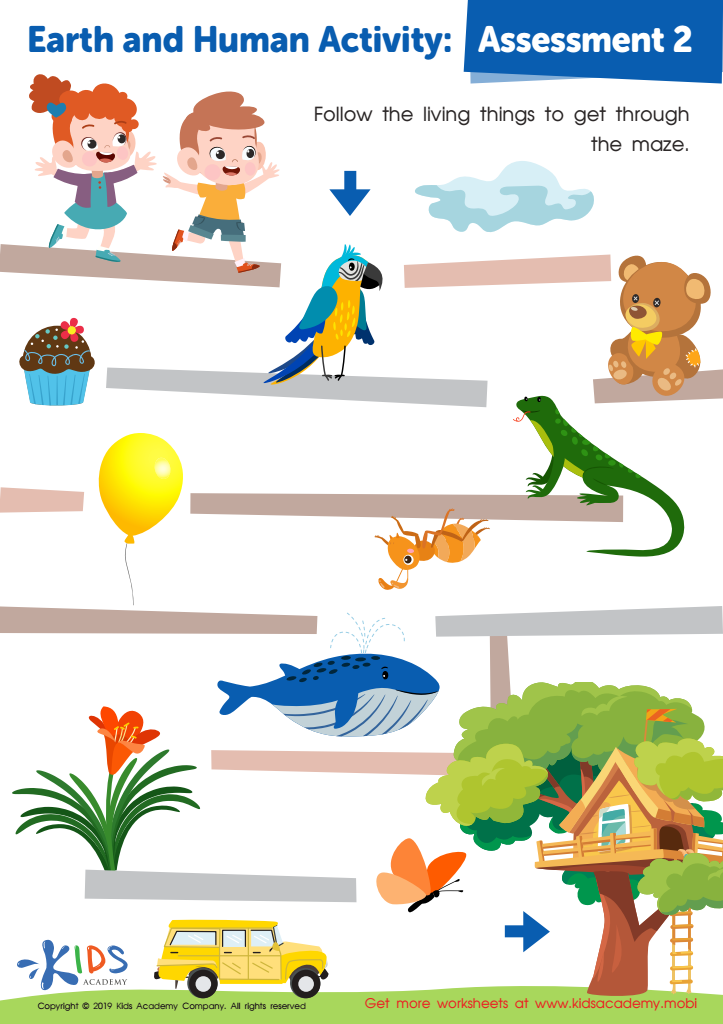Learning human impacts Worksheets for Kids
1 filtered results
-
From - To


Earth and Human Activity: Assessment 2 Worksheet
Question/Answer
What does the Learning human impacts skill mean when it comes to Kindergarten Plants and Animals learning?
The "Learning human impacts" skill in the context of Kindergarten Plants and Animals learning involves teaching young students about how human actions affect plant and animal life. This skill aims to build awareness in children about the environment and encourage responsible behavior towards living organisms and their habitats, emphasizing conservation and the importance of maintaining ecological balance.
How does the mastery of the Learning human impacts skill affect a student's performance at an early age?
Mastery of the Learning human impacts skill at an early age significantly enhances a student's performance by improving their ability to acquire, retain, and apply knowledge effectively. It fosters critical thinking, problem-solving abilities, and adaptability, establishing a solid foundation for academic success and lifelong learning. Early skill development also boosts confidence and motivation, further contributing to academic achievements.
How to train the Learning human impacts skill in Kindergarten students learning about Plants and Animals?
To train the "Learning Human Impacts" skill in Kindergarten students learning about Plants and Animals, incorporate activities like storytelling about nature, interactive games that show the effects of pollution, planting seeds, and simple recycling projects.
 Assign to the classroom
Assign to the classroom











